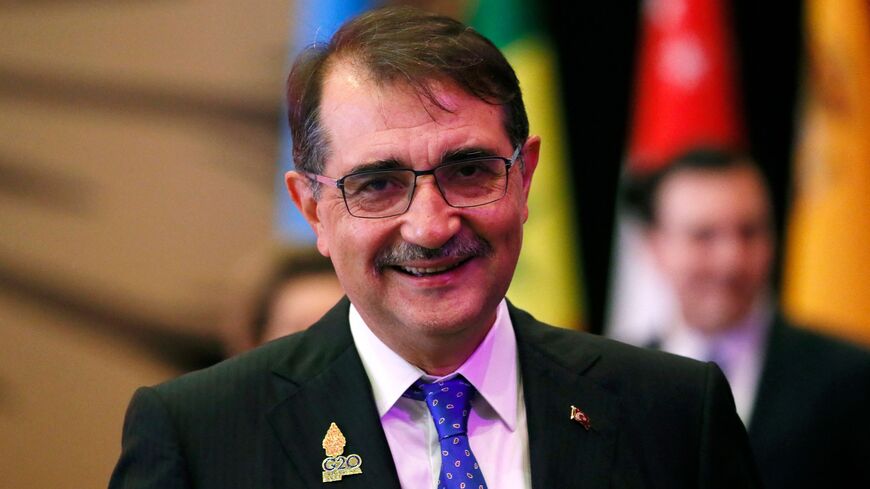ANKARA — Russia agreed to delay a fraction of Turkey’s natural gas payments, Turkish Energy Minister Fatih Donmez announced 10 days before a general election that threatens to unseat President Recep Tayyip Erdogan.
Speaking in a live TV interview with HaberGlobal earlier this week, Donmez said that Ankara had asked Russian energy giant Gazprom to delay some payments for its natural gas imports after energy prices skyrocketed last year. “An agreement was reached to postpone payments above a certain figure,” Donmez said without elaborating.
The Turkish official did not indicate how much of Turkey's energy debt will be deferred but the move, coming less than two weeks before Turkey's May 14 elections, raised eyebrows, as it may help Erdogan. The trade gap between Turkey and Russia stands at nearly $38 billion and largely stems from Ankara's energy imports from the country.
Erdogan faces his toughest reelection bid yet amid sky-high inflation and the severe economic and political damage wrought by deadly earthquakes in February. The disaster killed more than more 50,000 people in Turkey and displaced tens of thousands more, many of whom would typically vote for Erdogan's party.
This isn't the first time Turkey's embattled leader has turned to Russia for such help. Moscow has already allowed Ankara to pay off some of its energy imports in rubles following a meeting between Erdogan and Russian President Vladimir Putin last August.
Turkey's main opposition party argued earlier this year that Moscow was interfering in the May elections through a series of economic gestures including deferring Ankara’s $20 billion worth gas debt. Turkey’s state-run energy importer denied the accusations in a statement.
Donmez’s statement earlier this week marks the first public acknowledgement of the deal. The energy minister didn’t clarify the total figure Gazprom agreed to delay but said that the opposition was incorrect about the amount deferred.
Turkey, which has balanced relations between Moscow and Western capitals since the beginning of the Ukraine war, hasn’t joined sanctions against Russia, but sealed off its straits to Russian warships and continues to provide military support to Kyiv.







